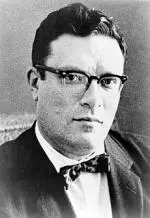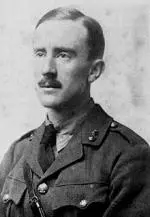I'm going to let you in on a secret here. It's kind of technical, so you need to concentrate. Here goes.
Writing well consists of two elements:
1) Big picture stuff (the story)
2) Small picture stuff (the words you use to tell the story)
Now I'm going to let you in on another well-guarded secret. You might want to sit down before reading it, because this is radical.
The only one of these two that matters, is the first one.
If you want proof of this,visit your local book store (if one of those still exists in your area) and leaf through a best seller. Exceptions exist, but I'll lay odds that whichever one you pick, you’ll quickly see that the small picture stuff is probably the least important element of what makes a book successful. Critics can pour as much scorn as they like on the opening sentences of The DaVinci Code, but the buying public simply doesn’t give a shit how many times an author uses the verb ‘to be’. What they care about is a story that makes them want to find out what happened next.
But the small stuff is still what most of we writers focus on, usually with great pain as we read through the horrible things we wrote the night before. If like me you occasionally find yourself weeping into your keyboard after a brutal bout of editing, it doesn’t hurt to remember that it isn’t just the Dan Brown’s of this world who can’t write well. Some of the authors whose portraits hang in the western world’s literary Hall of Fame also had trouble distinguishing the right place to end a sentence or how to craft dialogue that sounds like something a person might actually say.
So in the spirit of soothing wounds, let’s pay homage to the famous writers whose prose sucked balls.
![]() Isaac Asimov – Toxic Info Dumping
Isaac Asimov – Toxic Info Dumping
No one can doubt Asimov’s brilliance when it comes to ideas. This is the man who invented the Three Laws of Robotics. This is the man who came up with the Foundation series and the concept of psychohistory. This is the man, who along with Heinlein and Clarke, is described as one of the ‘Big Three’ of science fiction.
This is also a man who was a terrible, terrible writer. Asimov’s prose fails in many ways, but since I want to save some derision for the rest of my victims, I’m going to focus on his insane need to rain information on his readers like he is a man filling in a shallow grave and they are the corpse.
Bogert is right,’ said Dr Calvin, ‘Ever since the Interplanetary Code was modified to allow robot models to be tested in the plants before being shipped out to space, anti-robot propaganda has increased.’
Well obviously testing the robots in the plants would upset people and it would probably upset me too if I could only figure out why that is bad and why I need to know it.
In this excerpt, human and robot get philosophical:
But where do I come in Powell?’ [asked the robot] ‘You haven’t explained my existence.’
'The rest is simple. When these stations were first established to feed solar energy to the planets, they were run by humans. However, the heat, the hard solar radiations, and the electron storms made the post a difficult one. Robots were developed to replace human labor and now only two human executives are required for each station. We are trying to replace even those, and that’s where you come in. You’re the highest type of robot ever developed and if you show the ability to run this station independently, no human need ever come here again except to bring parts for repairs.’
Here Asimov feels it’s important to list all the reasons humans shouldn’t be on Mercury, because although the robot is smart enough to run the station, it isn’t smart enough to figure out that electron storms and carbon-based lifeforms don’t mix.
And finally, the failure of a robot to provide answers prompts a lively debate between its handlers:
Lanning shook his head decisively. ‘No. There are no known limits to The Brain’s capacity. It’s a different matter. It’s a question of the Robotic Laws. The Brain, for instance could never supply a solution to a problem set to it if that solution would involve the death or injury of humans. As far as it would be concerned, a problem with only such a solution would be insoluble. If such a problem is combined with an extremely urgent demand that it be answered, it is just possible that The Brain, only a robot after all, would be presented with a dilemma, where it could neither answer nor refuse to answer. Something of the sort must have happened to Consolidated’s machine.’
Asimov trying to nail the concept of a robot solving an insoluble problem (in case you wondered, it can’t) is like watching a slow man whacking at a nimble rat with his shoe. Each time he thinks he’s finally killed it, he sees that no, he needs to hit it again.
And again.
And again.
![]() Richard Adams – Upper Class Rabbits
Richard Adams – Upper Class Rabbits
I love Watership Down for lots of reasons. It’s a great story of derring-do, in the best Kipling tradition, and the world building is meticulous — a whole leporine culture, complete with language, legend and tradition to support it. But much as I love it, whenever I reread it, there’s one aspect of Adams’ writing that makes me grit my teeth and that is the dialogue.
Dialogue isn’t just a way of transmitting information from one character to another (although if you read enough Asimov, you’d think it was), it’s also a way of telling your reader who the characters are. Speech is highly personal, highly individual. Our words say where we come from, how we think, what’s foremost in our mind at the time we utter them. In Watership Down we have a whole warren of rabbits who not only all sound the same, they sound like the members of the local golf club got together at the nineteenth hole to enjoy a pint and compare handicaps.
Here’s Fiver trying to talk his brother Hazel out of a dangerous mission:
‘I suppose it’s no good asking you not to go?’
‘Look here,’ answered Hazel. ‘Have you got one of your bad turns about the farm? If you have why not say so straight out? Then we’d all know where we were.’
This is dialogue straight from In Which We Serve or Mrs Miniver. These rabbits are so stiff upper lipped I’m surprised they can eat. The overwhelming impression the dialogue gives us about Hazel and his chums is that these are rabbits who badly need to loosen up.
Now I get that Adams was a product of his time and that’s how he and other people spoke back then, but look what happens when he tries to use dialogue to differentiate his characters.
This is Keehar, the seagull.
‘Meester Pigvig, ‘e vant you t’ink all vun peeg yoke; make you prave. Cat ‘e no yoke. You no see ‘im, you no ‘ear ‘im. Den yomp! ‘E come.’
In case you couldn’t tell, English is not Keehar’s first language. This is dialogue so heavy handed that reading it is like getting a firm smack round the back of the head.If you’re ever tempted to give a character an accent, don’t because if you’re not careful you might end up with this:
‘There’s ol’ woild rabbit, look!’
‘Ah! Reckon rest of ours ain’t s’far off. Got up there with ‘un, see? Best go’n ‘ave a look.’
No, these are not also seagulls, these are humans. Back in 1972 this was how you told your reader that a character was working class – by giving them an accent so thick you can barely understand them.
![]() J.R.R. Tolkien – So many fucking hills
J.R.R. Tolkien – So many fucking hills
If you think I’m being unfair to Adams, take a look at the dialogue in Lord of the Rings. The two books bear many features in common – they’re both road stories set in a fantasy world starring non-humans who have to think and behave in a way humans will understand. But Tolkien, who has a better ear for spoken language than Adams, makes his characters sound natural and distinguishable from each other without once resorting to cheap tricks like giving them stupid accents. Good job Tolkien.
But oh the hills. The fucking hills.
Every story needs some scene setting, to help the reader develop a nice clear picture of where all the exciting stuff is happening. Scene setting is a bit of an art – some writers (Robert B. Parker is an excellent example) do it so well it looks easy. Some don’t. Tolkien doesn’t make scene setting look easy. He makes it look really, really hard.
At the bottom of the Hill on its western side they came to the gate opening on to a narrow lane.
The sun was beginning to get low and the light of afternoon was on the land as they went down the hill.
The sun had gone down red behind the hills at their backs.
The woods on either side became denser; the trees were now younger and thicker; and as the lane went lower, running down into a fold of the…’
Guess what the lane ran down into. Yes, it was more fucking hills.
And this is all within a ten page section of Book 1. For a man writing a road story based in a fantasy version of the Home Counties, Tolkien seems to have zero interest in helping the reader visualize Middle Earth. He has three go to descriptive words: forests, roads and hills and the end result is about as imagination-provoking as the minutes of the latest meeting of the Society of Cartographers.
'We can cut straighter than the road anyway,’ answered Frodo, ‘The Ferry is east from Woodhall; but the hard road curves away to the left – you can see a bend of it away north over there. It goes round the north end of the Marish so as to strike the causeway from the Bridge over Stock.’
Got all that? Good. Next item on the agenda is getting from Galandhir to Frithnadir without cutting across any Rights of Way.
![]() Philip K Dick – Characters you can’t fail to not care about
Philip K Dick – Characters you can’t fail to not care about
Dick, who mined much the same territory as Asimov for his fiction, was, also like Asimov, a writer with brilliant ideas, and perhaps there’s a connection between great ideas and bad writing, because Dick commits many of the same prose errors as his fellow author. Of the two, I find Dick infinitely more readable, probably because he has a sense of humour, a quality Asimov signally lacks, but also because he does try to give his characters some kind of an emotional life.
But ‘try’ is the key word here. Dick, who wrote scifi as a money-spinner while attempting and failing to make it as a literary author, always struggled with characterization. This may explain why he never achieved publication as what he would have regarded as a ‘serious’ writer: lit fic generally relies on character to drive the reader’s interest, in sci-fi you have plot and setting behind which to conceal the fact that your characters have all the charm of a tree.
Even so, in a book like Do Android’s Dream of Electric Sheep? which depends heavily on the idea that humans and androids differ in their responses to emotional stress, the cracks in Dick’s writing soon appear.
Here’s Rick Deckard, the main character, idly considering (as you do) whether he would sleep with a female android.
For example, Rachael Rosen. No, he decided; she’s too thin. No real development, especially in the bust. A figure like a child’s, flat and tame. He could do better.
This is the guy we’re supposed to root for (he’s also married by the way). Later in the story, Rick helps a fellow cop kill a female android called Luba Luft.
She really was a superb singer, he said to himself as he hung up the receiver, his call completed. I don’t get it; how can a talent like that be a liability to our society?
That’s right Rick. We should only kill androids who suck at singing. But if Dick fails to give his lead character a realistic emotional reaction after he shoots a woman dead, he does understand that even a hardened bounty hunter like Rick Deckard should unwind a little when he’s around his wife. In this scene, Deckard has finally fulfilled his dream of buying a real animal. Iran is his wife.
‘It’s a goat,’ Iran said. ‘A black Nubian goat.’
‘Female,’ Rick said. ‘So maybe later on we can mate her. And we’ll get milk out of her which we can make cheese.’*
Can you sense his excitement? OK neither can I. Two sentences later, Iran responds to the gift of the goat.
She put her hand gently on his shoulder, leaned towards him, and kissed him. ‘Much love. And very much pleasure.’
‘Thanks,’ he said, and hugged her.
These are not two people who have just acquired the ultimate status symbol of a real, live animal, one of the very few left on a ruined planet, one bought from the proceeds of killing three androids. These are two people who have just purchased a couch. Try as he might, Dick can’t animate his characters and although you could argue that he’s making the point that humans are just as emotionally flat as androids, I don’t buy that theory. It’s just bad writing. One final quote settles it — Dick can’t even summon up the prose chops to write a convincing goat:
”Is this goat a female?” He had noticed a big black goat standing squarely in the center of its cage…The goat, it seemed to Rick, was beautiful.
Nothing more beautiful than a big, black female goat standing squarely in the center of its cage, right?
Now I’m beginning to worry exactly how Rick plans to mate that goat….
The lesson for the rest of us is this: don’t sweat the small stuff. Keep your gaze fixed firmly on the big picture, because if you get that right, no one will waste any time worrying about your technique.
Or why your main character finds goats beautiful.
*I’m transcribing this exactly as it’s written - zero points to the Phoenix copy editor.

About the author
Cath Murphy is Review Editor at LitReactor.com and cohost of the Unprintable podcast. Together with the fabulous Eve Harvey she also talks about slightly naughty stuff at the Domestic Hell blog and podcast.
Three words to describe Cath: mature, irresponsible, contradictory, unreliable...oh...that's four.
 Isaac Asimov – Toxic Info Dumping
Isaac Asimov – Toxic Info Dumping

 J.R.R. Tolkien – So many fucking hills
J.R.R. Tolkien – So many fucking hills
 Philip K Dick – Characters you can’t fail to not care about
Philip K Dick – Characters you can’t fail to not care about








